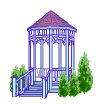 |
|
| Pisa | |
 |
|
| Pisa | |
| With this year being the 2000th anniversary
of the birth of Christ, Italy, which
contains
within it the Vatican City State, is
thronged
with pilgrims and tourists everywhere,
not
just in Rome. After all, over 95% of
the
people of this country are Catholic.
I don't
know anything about religion, but I
can't
help noticing various strange sights. For example, at the elementary schools here, Catholic instruction is part of the regular curriculum, people can't get divorced (which accounts for why so many people live together without getting married), on Sunday mornings every channel broadcasts masses . . . Religion occupies an important place in life. |
|
 |
|
| Mr. Oka, the president of the Italian Go Federation & Shinkai Hiroko 5-dan | |
| Well, this autumn, I went to Pisa, with its famous leaning tower, for the first time to teach and attend a go tournament. By coincidence, Shinkai Hiroko 5-dan was visiting from Japan, so we went together. I felt a bit bad dragging her along, as she was making a private visit, but, putting that aside, I very much enjoyed my trip with my senior in the world of women's go. | |
 |
|
| The state of Tuscany | |
| Administratively, Italy is split up
into 20 states, and each has its own unique
customs and language and cuisine. The state
of Tuscany, in which Pisa is located, is
a hilly region with an abundance of wheat
fields and olive groves and vineyards. You
are probably all familiar with it as the
home of Chianti. It takes about three and a half hours by car from Milan to Pisa. We made our way there under the kind guidance of Mr. Oka, the president of the Italian Go Federation, whom we introduced in the July instalment of this column. |
|
 |
|
| The Arno river | |
| The Pisa club is a brand new go club,
founded just last year. It started
when the
game was taken up by two or three university
students and in no time expanded to
about
30 members. Almost all of them are
students
in their early 20s, so the club has
a youthful
atmosphere. At present, the club meets every Tuesday night. The members assemble in a cafe on the bank of the Arno river, which flows through the centre of the town. The tournament was also held in this cafe, with about 20 participants. The strongest player is 8-kyu, equivalent to 3- or 4-kyu in Japan. This was a region that previously had been completely ignorant of go. Securing such a solid base in only one year is really impressive. When they first started, the players learnt the rules from the Net. They discovered the Federation, got teaching materials, taught their friends, and looked for a club venue. The effort involved is unimaginable in Japan, where go had merged into society, but it's nothing unusual overseas. Actually, last year there was major progress in using the Net to spread knowledge about go. There are also European-made go sets that are easy to buy. I think go is entering a period of rapid development and change. For a long time, the centre of Italian go was Milan, but in the last year or two go clubs and fans have been sprouting up in new regions, including Pisa. Florence, Bologna, Naples in southern Italy, Bari, the island of Sardinia, etc., etc. To all go fans: when you are making your shopping + gourmet trip to Italy, how about checking out the go clubs too? |
|
 |
|
| teach and attend a go tournament | |
 |
|
| Getting back to Pisa, I really enjoyed
my first sight of the Leaning Tower of Pisa.
I'd been scornful -- what's a tower that's
just a little crooked? -- but that was ridiculous.
There's nothing like seeing something for
oneself. I couldn't but be impressed by its
majesty, the solemnity, the mystical weight
of history. I should have come sooner . .
. According to the locals, no one has been able to climb the tower for the past ten years, as it has been closed for restoration work, but it may be open again next year. You can't put any credence in rumours like this in Italy, but even so I'm secretly looking forward to climbing it. |
|
 |
|
| Tower of Pisa |